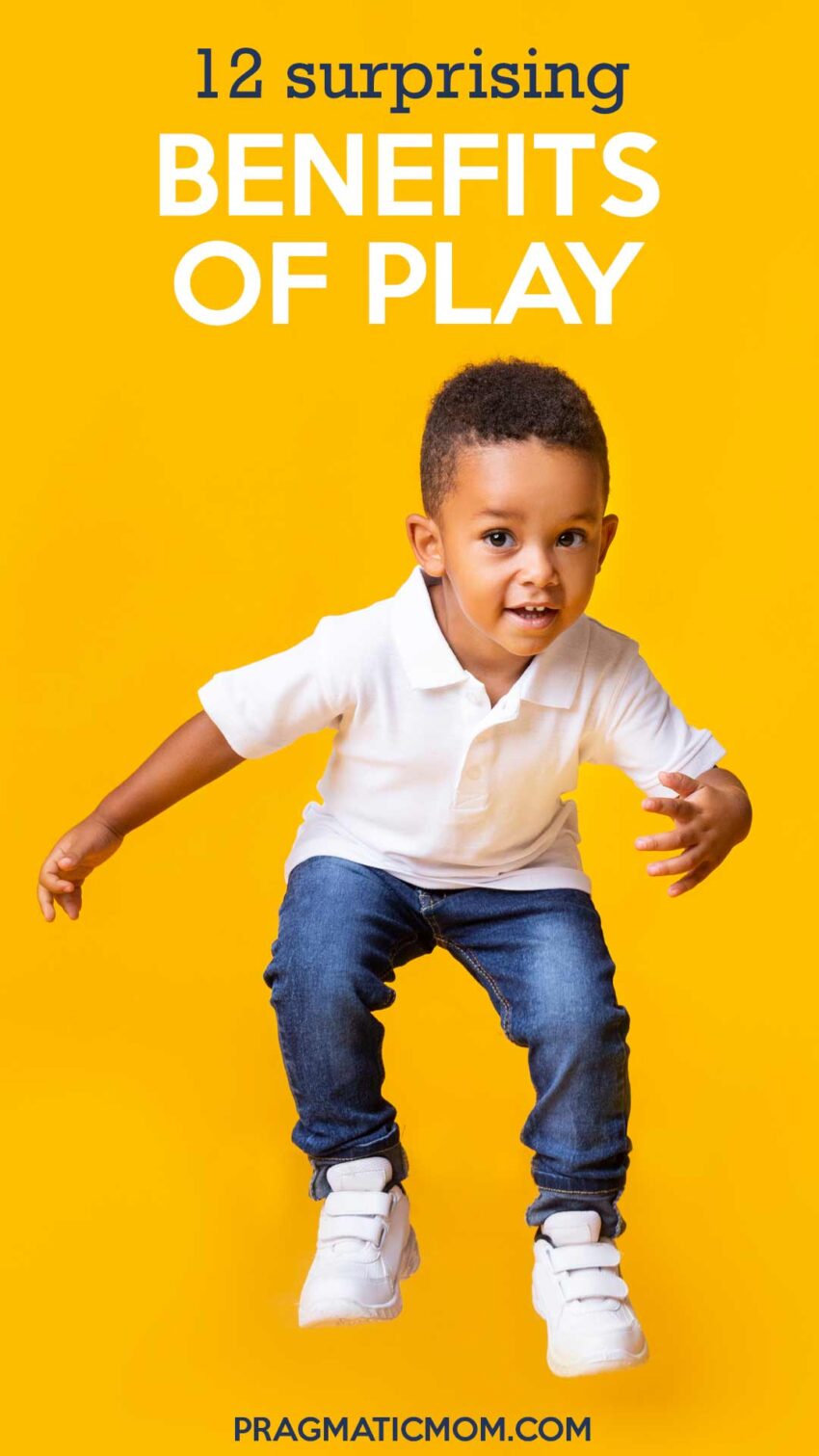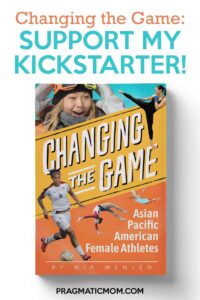I met Dr. Borba on Twitter and she’s my “go-to” for all things parenting and education including cyberbullying & bullying, special education, and hot button issues including biting, tantrums, cheating, bad friends, inappropriate clothing, sex, drugs, peer pressure, etc. What is different about Dr. Borba from other parenting and education experts is that she’s grounded in the real world talking constantly to parents about the issues they face every day.
I actually found this post on The 12 Surprising Benefits of Play (and really, the crucial importance of unstructured playtime for children) through The Goddard School and asked her for permission to post. Her exact words were, “Thanks for asking. Please post. Trying to get the word out – poor deprived kids. Sigh.” You just gotta love an expert that is so easy to relate to!
Without further ado, Dr. Borba (echoing Race to Nowhere ‘s message) why children need unstructured time to play, and plenty of it!
p.s. Her own excellent blog here.
The Importance and Benefits of Play for Kids
By Dr. Michele Borba
Okay folks. I’m concerned. Over the last few weeks, I’ve been reviewing studies involving children and play. “Shocked” and “disturbed” are the two words that describe how I feel when reading those reports.
Every study reaches one sad conclusion: Good old-fashioned play is quickly becoming an endangered pastime for today’s plugged-in, over-scheduled kids.
Worse yet, play is not only disappearing from our homes and neighborhoods but our schools as well. And this comes at the same time when reports show that stress is mounting to new heights in our kids while their mental health has plummeted to a twenty-five-year all-time low. A good old-fashioned childhood of cloud-gazing, leaf-kicking, and hill rolling is disappearing to be replaced by screens, earplugs, flashcards, and tutors.
Facts About Today’s Play-Deprived Kids
- Since the late 1970s there’s been a 25% drop in our children’s free play and a 50% drop in unstructured outdoor activities
- Since the late 1970s kids time in organized, adult-supervised sports have doubled and the number of minutes devoted each week to passive leisure, not including watching television, has increased from 30 minutes to more than three hours
- The average U.S. child is now “plugged-in” to some kind of digital device–not including cell phone and text–71/2 hours a day
The loss of play and even skepticism about its value may be partly due to a more competitive, “no-child left untested era” (don’t get me started on that one…), our increasingly hurried, quicker-pace lifestyle, and the belief we have to schedule our kids with activity after activity to stretch those IQ points. Now Tiger Mom–and every media outlet our there appearing to quote her–is urging every so-called “Western” mom to halt those play dates and any child-chosen activity.
Whatever the reason, today’s kids are playing less and many experts–and the kids–are crying, “Foul!” and with good reason. Dozens of studies prove that play is not just a luxury but essential to our children’s healthy development.
12 Scientific Benefits of Play
We’ve always known that “kids and play” are just a natural combo. But new research also shows that letting kids engage in self-directed play has immense value for their social, emotional, cognitive, and physical growth. Here are just a few of the proven scientific benefits of letting our kids get messy and doing something besides clicking those darn keypads and video controllers and paper and pencil tasks:
1. Play boosts children’s creativity and imagination. Play gives children the chance to invent, build, expand, explore and develop a whole different part of the brain.
2. Play stretches our children’s attention span. Playing outdoors just 30 minutes a day increases a child’s ability to focus and pay attention.
3. Play and rough-housing boost boys’ problem-solving abilities. The more elementary school boys engaged in rough-housing, the better they scored on a test of social problem-solving. (Don’t ya love that one!)
4. Play boosts self-confidence and self-regulation. Kids learn to become masters of their own destiny without an adult directing, pushing, managing, or scheduling.
5. Play forges friendships, strengthens social competence, and teaches social skills. Undirected play allows kids to learn how to work in groups, share, negotiate, communicate and develop core social skills they need not only now but for the rest of their lives.
6. Play helps kids learn to enjoy just being in their own company, entertain themselves and develop identity. Ease that guilt when your kid says, “I’m bored, Mom!”
7. Play reduces children’s anxiety and diminishes stress. A study published in the Journal of Child Psychology and Psychiatry shows that play is also critical for our children’s emotional health because it helps kids work through anxiety and reduce stress.
8. Play creates joyful memories of childhood. Come on, no kid is going to remember the carpools and worksheets but the swings, jumping in leaves, playing leapfrog in the mud, blowing bubbles, building forts–those are the unforgettable childhood moments. Sigh!
9. Play boosts physical health and reduces the risk of obesity. Henry Joseph Legere, MD, author of Raising Healthy Eaters points out: “Rises in screen time have led to the rise of a sedentary lifestyle for our children. In 1982, the childhood obesity prevalence in the United States was actually less than 4 percent. By 2004, that number had grown to about 30 percent.”
10. Play expands our kids’ minds and neurological development. Self-initiated play improve skills such as guessing, figuring, interpreting and is important to brain development and learning
11. Play builds new competencies, leadership skills, teaches lifelong hobbies, and develops resilience. “Play is what allows kids to manipulate their environment,” says a report by Kenneth Ginsburg, M.D. of the AAP, “And how you manipulate your environment is about how you begin to take control, how you begin to develop your senses, how you view the world.”
12. Play nurtures the parent-child bond. Child-driven play also improves our parent-kid relationship. Play offers a wonderful opportunity for parents to see the world from their children’s eyes as well as strengthen our relationship when we join in.
In fact, playing with our kids is one of the few times when clocks stop and stress fades. There are no judgments, schedules, or time constraints that worry us. It’s just a glorious opportunity to give our kids our full presence, be in their space and enjoy each other’s company, and build those wonderful childhood memories. Keep in mind folks, there’s no rewind button when it comes to childhood!
So parents, why not just this week push pause and tune into your kids’ schedule? I dare you: take a Reality Check and see just how unstructured, unsupervised time your kid has. While you’re at it, here are a few questions to help you assess if play should be added to the “Endangered Species List” at your home.
Reality Check: Could Your Kids Be ‘Play Deprived’?
How much are your kids plugged into some kind of a digital device?
How often are your kids glued to that TV or clicking that keypad?
How much free time do your kids have that is unscheduled, unplanned, unsupervised?
How often do your kids go outdoors to just recompress?
Do your kids know how to entertain themselves solo as adult, coach, teacher, or you whether it be indoors or out?
Do your kids enjoy the great outdoors?
How often (if ever) do your kids see you throwing off your shoes and joining in the unplanned, spontaneous fun with them?
Do your kids know outdoor age-appropriate games and have the equipment for those activities whether it be hopscotch, jump rope, Red Rover, I Spy, basketball, freeze-tag, kick the can, skateboarding?
Do your kids know how to self-entertain and do activities that would nurture their creativity or imagination on a regular basis?
Do you set a rule that when friends come to the house a minimum or no plugged-in devices are allowed?
Would your kid say that you encourage them to play unstructured?
How do you respond when your kids get messy? (Just asking…but remember letting your kids get messy every now and then is actually a great way to teach them that nobody’s perfect, accidents do happen, and teaches them to enjoy themselves and their own company).
Let’s remember: Play is essential — not a luxury – for our children’s well-being. Thirty years of solid child development research confirms that play is crucial for our children’s social, emotional, physical, and cognitive growth. So check into your kids’ lives and make sure at least a bit of “free time” is a part of their waking hours.
What do you think? Are our kids becoming play-deprived? And if they are, what do you see as the disadvantages?
Dr. Michele Borba, Parenting Expert. You can also refer to my daily blog, Dr. Borba’s Reality Check for ongoing parenting solutions and late-breaking news and research about child development.
p.s. Related posts:
Why Kids Should Play More Than One Sport
Gift Guide: Best Blocks for Creative Play
Let’s Play Outside! Scavenger Hunt, Picnic & Book List for Kids
How to Play #PokémonGO with Your Kids
Fantasy Garden Play Spaces for Kids and Adults
Lemonade Stand Ideas for Young Entrepreneurs: 100 Days of Play
I’m a Girl Soccer Player: Coach Me Differently
To examine any of the items listed, please click on image of item.
As an Amazon Associate, I earn from qualifying purchases.
BEST #OWNVOICES CHILDREN’S BOOKS: My Favorite Diversity Books for Kids Ages 1-12 is a book that I created to highlight books written by authors who share the same marginalized identity as the characters in their books.














When I was doing after school care, I asked my daughter what she would prefer if she was in my program; a planned activity, or just time on the playground doing what she wanted to do. She firmly replied that kids in school spend the whole day doing what adults tell them to do, and that there is a limit to how much of this a child wants. I planned my after school care program that way. I provided materials such as bean bags and balls I made from scraps of fabric, flippy fliers I made from circles of fabric with those plastic packaging belts sewn inside. I let them decide what to do with it.
I am currently working on a new book; Caring After School, how to make after school care teach more, cost less and run more smoothly. I’d like permission to include this article. How can I contact this author?
To Paula,
I love your philosophy and I’d love to review your book when it comes out!
I love your blogs and news nice work!
To Jason,
Thank you!
I agree that more unstructured play is needed. I also liked this from NPR http://www.npr.org/templates/story/story.php?storyId=125624125
To Capability Mom,
Thank you for that article. I’m writing a post on recess and I will definitely reference it.
To Capability Mom,
I think I believe in both free play and in recess coaches which sound just like camp counselors who teach outdoor games. The PlayWorks people sound like they give a nice balance of teaching outdoor games but without forced participation.
My kids made up some game called survivor that they play with the neighbor kids. It seems like a version of hide and seek but they do it in by a creek. It seems to include all ages and luckily there are no bullies on our street. This is likely going to be a really positive memory of their childhood for them.
They also play with the neighbor kids’ dad who routinely holds batting practice for them. They love that to and he’s great with them. Both is great. And if this were an option at school recess that would be wonderful but our recess issue is different because it’s more about not enough time for recess.